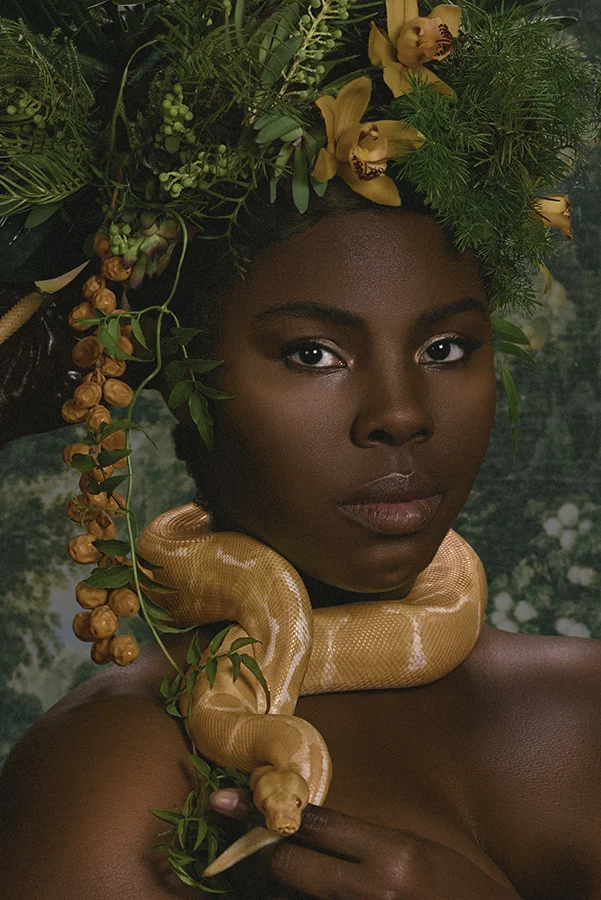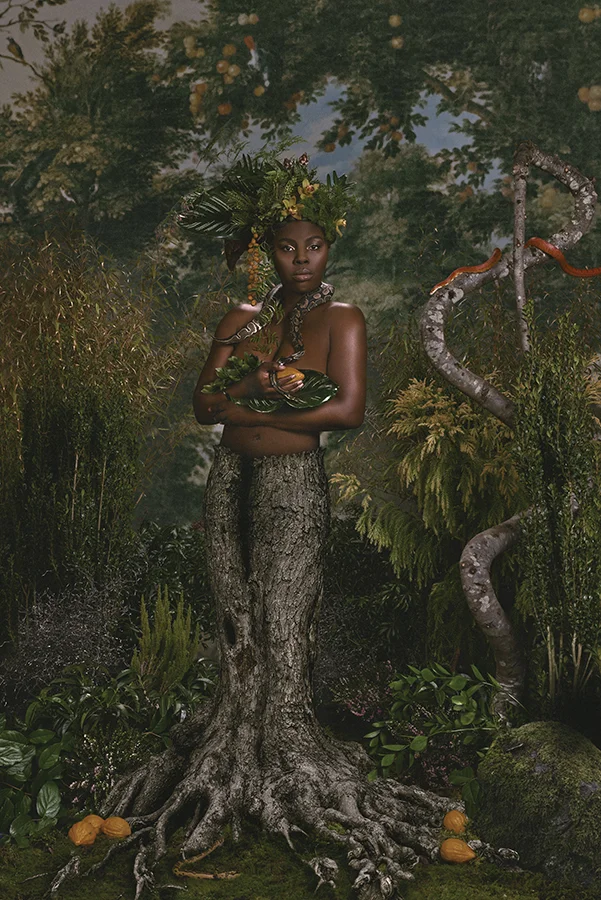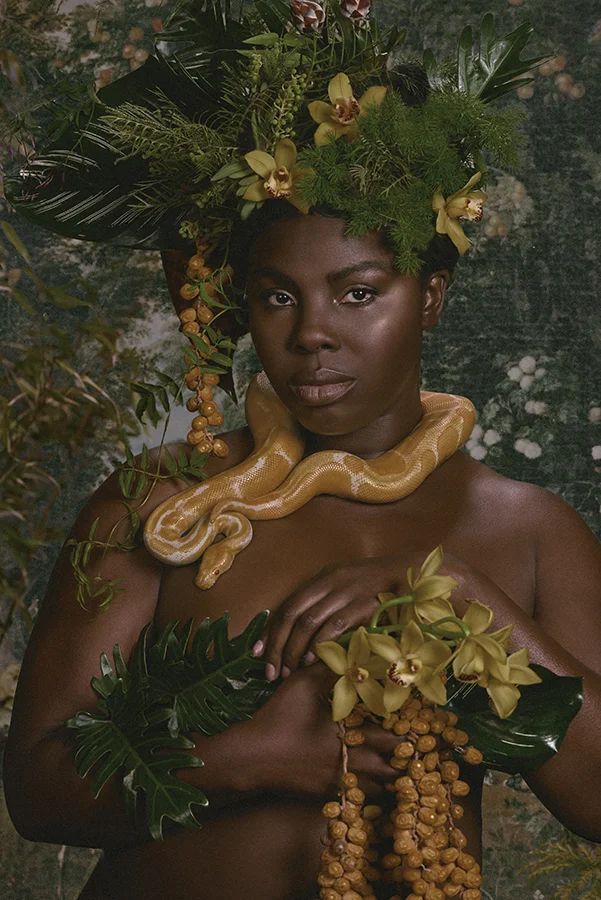Reclamation "Eve"
Stories have been, since the dawn of humankind, our way of making sense of ourselves, each other, and the world we have found ourselves in. These narratives are so deeply imbedded in our psyche that we don't even realize to what degree they inform our belief systems, our attitudes and our actions. These stories are never "stand-alones"...they are each part of a long arc of evolving patterns and beliefs, and to pluck any one of them out of that context and make it the ultimate paradigm is to miss the larger picture and meaning that they can provide.
In this series I'm considering the biblical stories of three women who have been systematically misrepresented, exploited or underrepresented by the patriarchal, hierarchical religious institutions as we know them today, and to invite the viewer to explore the traditions from which they are drawn, as well as the more recent feminist interpretations. It is not a manifesto, or a claim to "know" the ultimate answer - it is an invitation. I believe it's time to reclaim these stories and explore the possibility of a deeper and fuller meaning than what we have been given. My hope is that the images are both beautiful to gaze upon, and that they spark the viewer's curiosity to dive further into the conversation.
Being a woman, and having had that particular human experience, I am interested in the stories around the feminine that have shaped our past and current attitudes toward the "second sex", to steal a phrase from Simone de Beauvoir - who famously stated "the problem of woman has always been a problem of men". Themes that replay themselves over and over both in popular culture and personal interactions - the Virgin, The Whore. The perpetrator of Original Sin. You don't have to be religious to have had these stories inform your consciousness. If you live in the western world, that last narrative in particular has historically been used probably more than any other to subjugate women socially, religiously, economically, sexually, and politically in obvious, and not so obvious ways.
The story of Adam and Eve for instance was not original. Most of us know that, but we still generally understand that story as the "Fall" and Eve's role in it as "Original Sin", as coined by St.Augustine. It's interesting to note that the Jewish interpretations of the story can be quite different than the traditional Christian one. And if, as in the earlier similar stories from which it is drawn, the snake represents wisdom how does that change the narrative? In one of the more ancient traditions woman actually becomes the tree of knowledge. “Wisdom” is referred to many times in the bible, and early on is distinctly feminine…but by the end of the New Testament has morphed into maleness.
While one can argue that the exegesis was incorrect, or that it was a product of the culture of the time, the fact remains that the damage has been done. The popular understanding of these stories and how that has played out in our culture is what I'm interested in. It's a pity that we can't go back in time and have them written, curated, translated, and interpreted by women....what would that look like? Especially when we are talking about sacred texts and the power they hold over society, literally half of humanity was left out of the conversation. The best we can do, unfortunately, is take what has been handed to us and apply a feminine understanding to them to draw out more of their potential, and rectify some of the illegitimate claims. I want to be clear - my purpose is not to do some kind of reversal of extremes. I'm not interested in upending the status quo just to apply an equally unbalanced interpretation - I firmly believe we need both the female and male energies at work in their fullest God-given potentials to achieve harmony. One is not "better" than the other. They are two aspects of the whole, and when that is grossly out of balance - as it has been in the past few thousand years of patriarchy, both sides lose. It harms both. I think it's fairly obvious to state that the perpetrator of a crime can hardly be portrayed as a "winner"...the soul pays a price.
There have been in recent years some really wonderful efforts at feminist interpretations of these texts which is so encouraging...I think there is an assumption, however, that just because something has a female author it will bring a feminist viewpoint, but too often women have had to play by the male's rules just to have a seat at the table - when what we really need is an entirely new table for us all to sit at. I hope this series both inspires the mind, and entertains the senses of the viewer.


